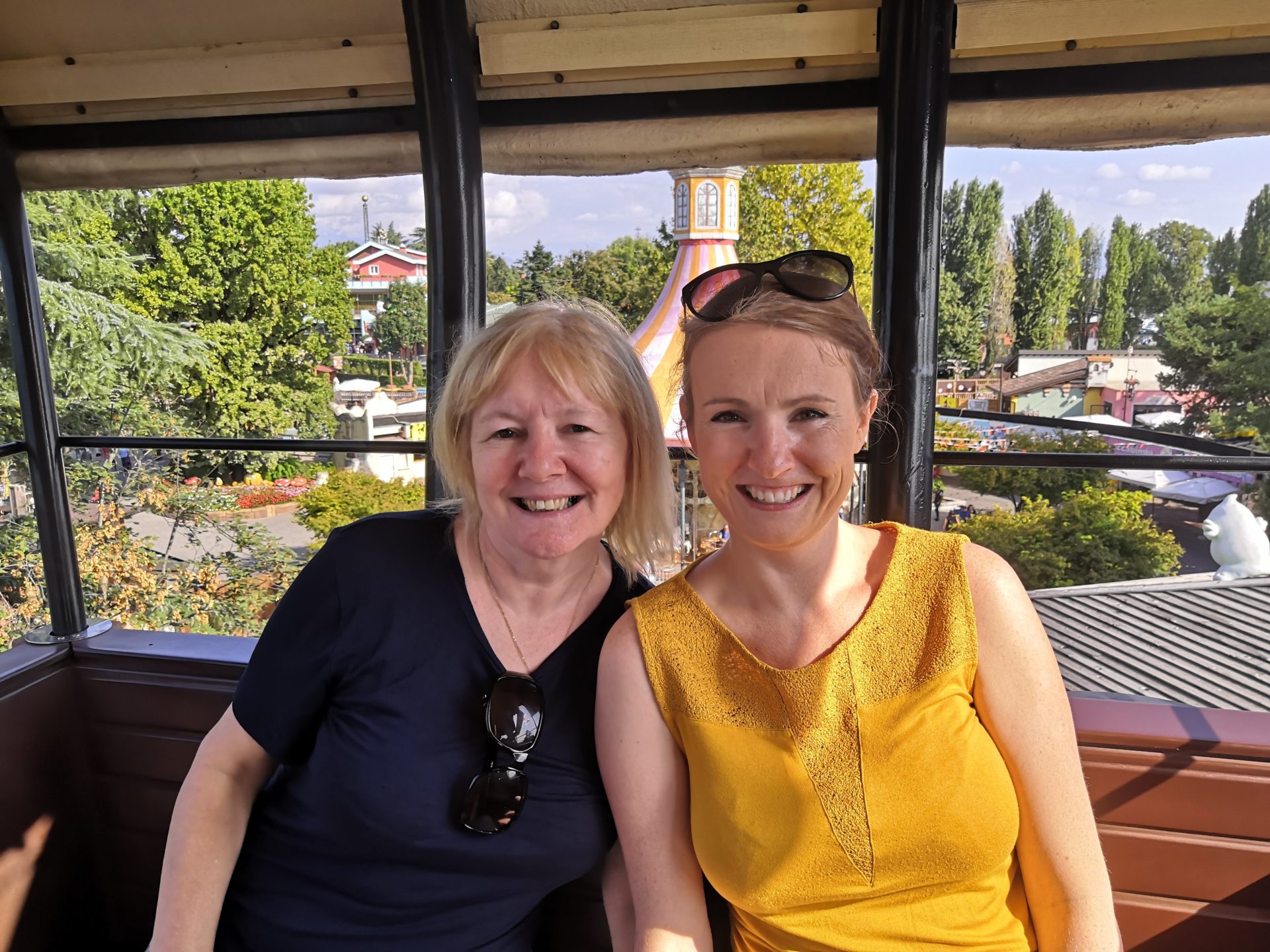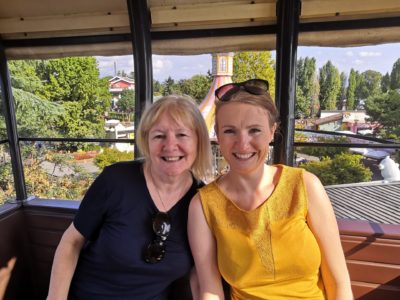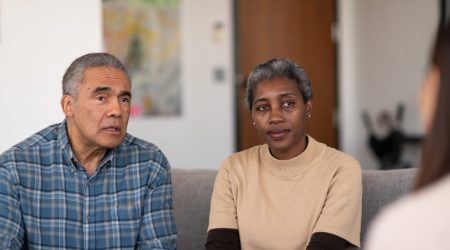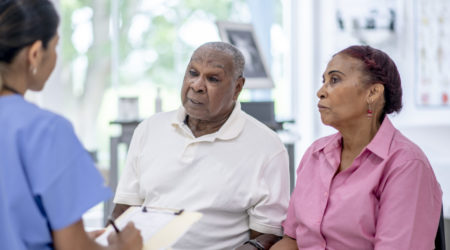



Anna & Virginia
Anna shares the story of her mum, Virginia, who passed away from pancreatic cancer aged 62, just six months after first experiencing symptoms. She tells us of the struggles they faced getting Virginia the help she needed during this time.
My mum was a very family-oriented woman. She was always at home for us the whole way through our childhood and even into adulthood. She basically was THE home.
I had a child in Switzerland but I’m a bit like my mum, I’m a home bird and I value family. We moved back in September 2020 and everything was going well. However, my mum started feeling sick in December 2020 when she was just 61, and then she died six months after that, three weeks past her 62nd birthday.
She started to feel unwell – all the symptoms were there
My mum had back pain for years. Even before the pandemic we couldn’t always see our GP, a lot of appointments occurred by phone and often symptoms like back pain were treated but no investigations carried out. But in November, she started to feel fatigued, mum put that down to being busier than usual. In December she developed nausea, persistent burping, and then she vomited on random occasions.
She contacted her doctors in December but couldn’t get an appointment. She tried several times. She would call 30-40 times in one day until she gave up.
She struggled to be taken seriously
Eventually she did get speaking to a receptionist who refused her an appointment and told her to go to the pharmacy to buy Gaviscon. And the Gaviscon obviously didn’t help. We booked her into a private GP in our city.
It was the Christmas period and my mother felt that the private GP was insinuating that she was drinking more than usual. My mum explained that she felt too sick to drink alcohol. Despite this, the GP did not recommend any scans, saying ‘normally we would arrange an endoscopy but in this case it’s likely stomach inflammation.’ He prescribed tablets called proton-pump inhibitors (PPIs).
The PPIs didn’t help, so she called her NHS GPs again in the first week of January 2021. Mum was very tired at that stage. They said they would order blood tests but that her blood would not be taken until two weeks or so.
Mum didn’t last the two weeks. She passed a black stool and I advised her to get to A&E, and that’s when the ball started to roll. They performed scans in the local hospital which revealed a four-centimetre mass on the head of her pancreas with multiple liver lesions consistent with metastasis. The diagnosis was not officially confirmed until February, because they had to wait on a biopsy.
They finally confirmed it was pancreatic cancer
There was a lot of confusion at that time; trying to get information from the hospital, also the pandemic made things difficult. We were relying on my mum’s text messages. Then one day I was sitting in the living room with my dad, and my mum phoned, and she said, someone has to get up to the hospital now, it’s bad.
I asked to speak to a consultant first before seeing my mum. This consultant had his personal protective equipment on, his face was half covered, and I was trying to read his eyes, trying to take in the message that my mum had pancreatic cancer, and I just couldn’t believe it. I walked into my mum’s side ward and she looked at me and said ‘Anna, I’m sorry’. I don’t know what she had to be sorry for.
Treatment wasn’t fast enough
She didn’t have chemotherapy; in fact, there was no discussion about chemo initially. And at that stage, we didn’t understand the process, we don’t have experience of cancer in our family. We knew that this cancer was the deadliest but no one had stressed to us the urgency required for this type of aggressive cancer. If we had known what we know now, we would have been pushing constantly to obtain an urgent referral to oncology. But no appointments occurred until long after the biopsy. I think it was early March when my mum finally sat in front of a registrar in oncology. We weren’t even provided with staging when we received the biopsy results.
She couldn’t have chemotherapy
They said they can’t give her chemo because they have to treat the complication first. Every time my mum recovered from one complication she developed another. She had developed jaundice due to a blocked bile duct. She then got a blood clot and then had ascites, so she never received any chemo.
As a family we believe oncology should have been contacted immediately in January, while waiting on the biopsy, as once they had seen the mass on the scans, healthcare professionals already acknowledged that my mother had pancreatic cancer.
Caring for her at the end was hard
Three weeks past my mum’s 62nd birthday, Macmillan nurses told my sister and me that my mother had hours to a few short days left to live.
My mother is a very private person. She didn’t feel comfortable having outside people coming in to wash and bathe her, so we took over all that at home. We reached total burnout before my mum died. We wouldn’t have it any other way as we love her deeply, I would do it again in a heartbeat, but it was extremely hard.
Her symptoms could have been spotted earlier
Urgency is important; once someone is diagnosed with pancreatic cancer, I think they should see an oncologist, that day. I know that might not happen because of resources, but there shouldn’t be a two to four-week wait.
Other cancers have seen improved survival rates and yet pancreatic cancer has seen no change in survival for over 50 years. Diagnosis must be made earlier to save lives and education is needed across the board on this cancer so healthcare professionals know what symptoms to look out for while there is no simple diagnostic test available.
July 2022




